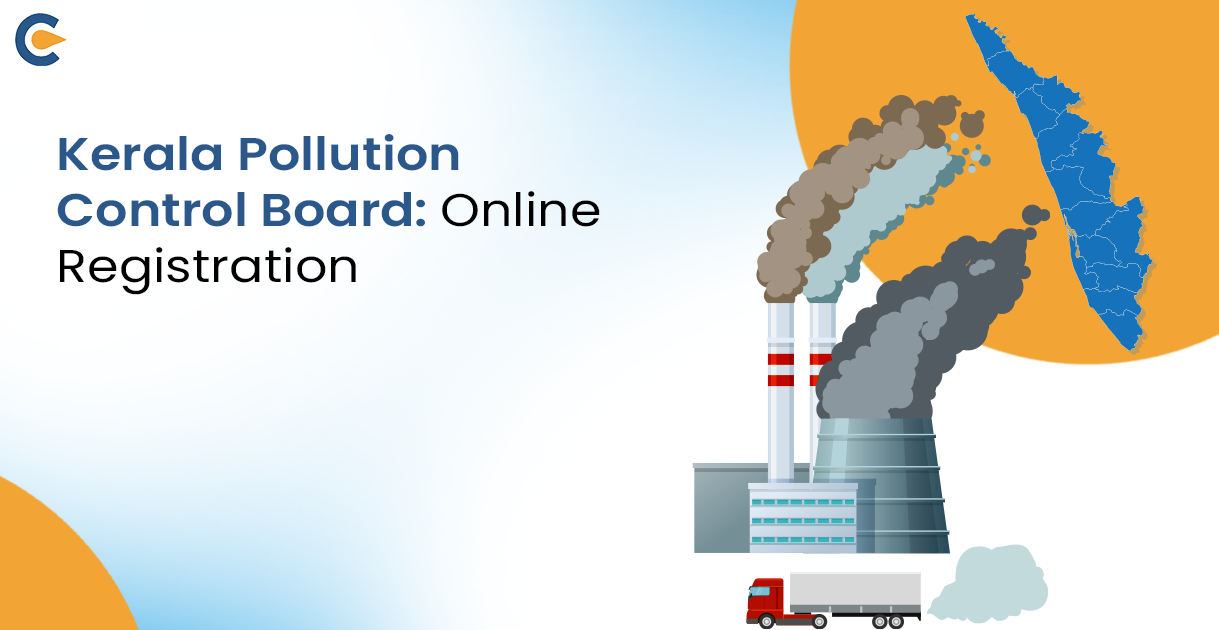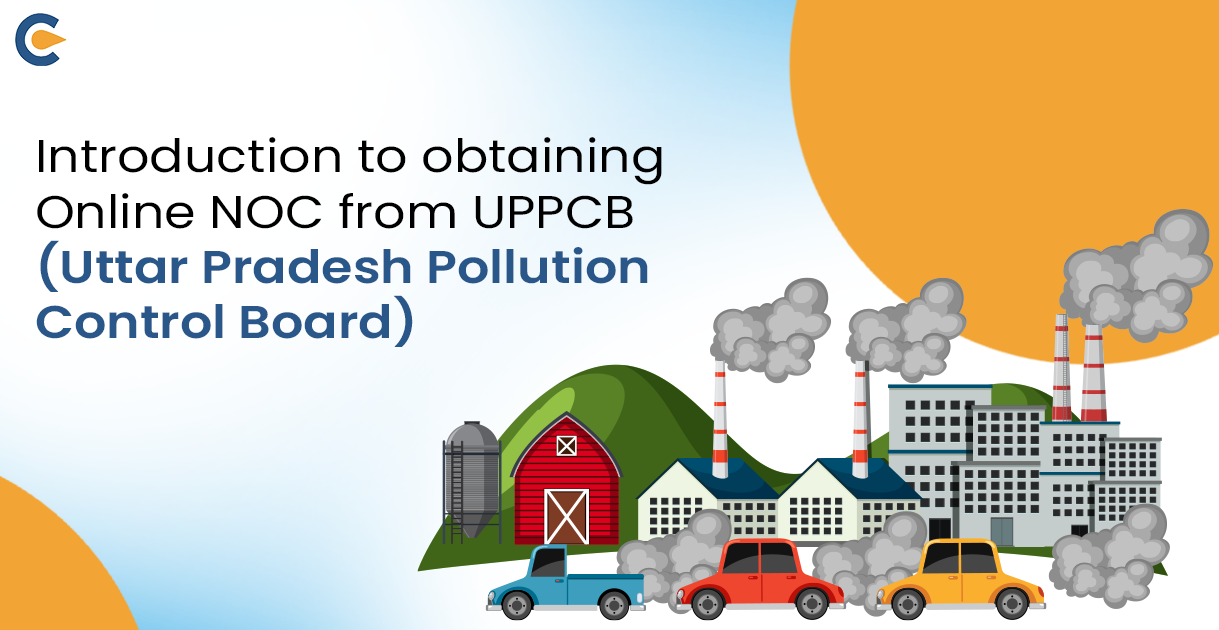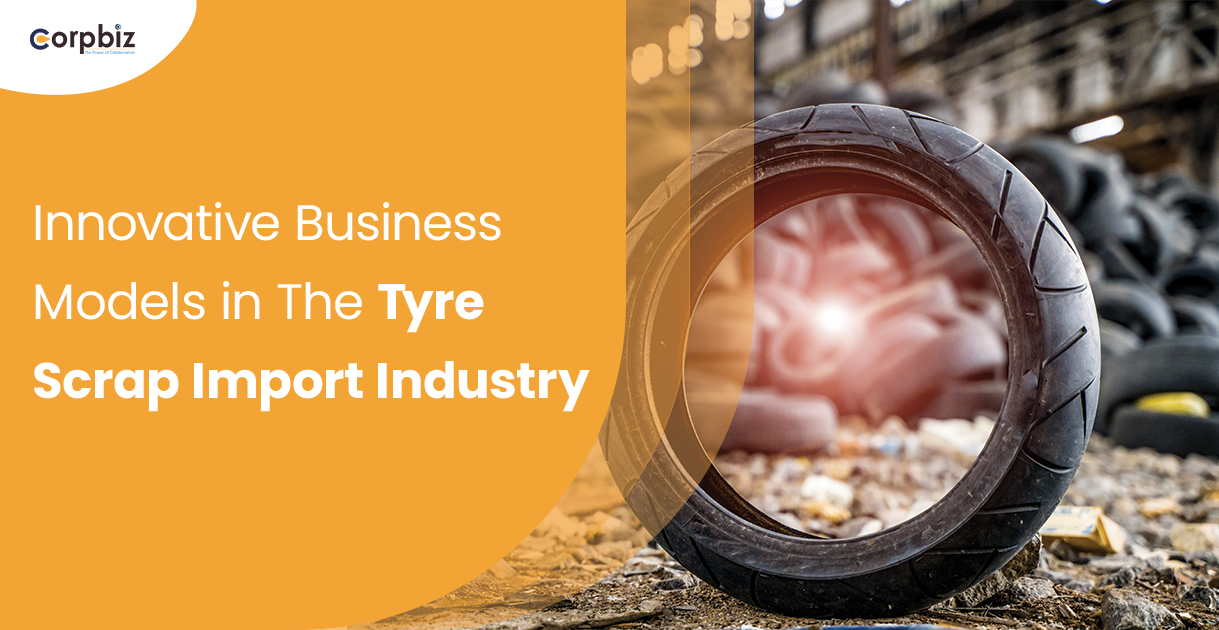The Kerala State Pollution Control Board (KSPCB) is tasked with one of its main duties, which is to guarantee the application of environmental acts and legislation in light of Kerala’s environmental consciousness. Therefore, the following are eligible to apply for the Kerala NOC: traders, e-waste management entities, manufacturing facilities, hazardous waste management entities, battery waste management entities, healthcare facilities, solid waste management entities, plastic waste management entities, and bio-medical waste management entities.
To ensure compliance, monitoring and inspection are required. Such checks lead to higher environmental performance by businesses and other stakeholders. They also have an impact on the actual upkeep and functionality of pollution control systems. They also provide regulators with a more accurate picture of the facilities’ pollutants. The conduct of industries and other partners will be affected by improvements in their environmental performance.
Functions of Kerala Pollution Control Board Online Registration
- To provide permission for businesses, establishments, lodging facilities, medical facilities, etc., to operate (CTO) and to establish (CTE).
- To examine the suggested sites for industry establishment and confirm that they are suitable from an environmental perspective.
- To accept, review, and provide authorization for the establishment of a waste processing and disposal plant, as well as to deny, extend, or revoke the authorization.
- To authorize the creation, storage, collection, and disposal of biological waste by health care facilities (HCFs) as well as biomedical waste treatment facilities.
- To gather and provide yearly reports from occupiers and operators to the Central Pollution Control Board.
- To receive and verify yearly returns from recyclers, bulk buyers, and auctioneers; moreover, to receive and verify half-yearly returns concerning the sale of new batteries and the collecting of old batteries; and finally, to file an annual compliance status report with the CPCB.
- To keep an eye on adherence to regulations regarding incineration, the surrounding environment, drainage quality, compost quality, and groundwater.
- To provide industry and local bodies with advice about legislative provisions.
- Developing comprehensive plans and ensuring their implementation in order to avoid, manage, or mitigate contamination of the state’s streams and wells.
- To carry out, take part in, and promote studies and research on issues related to air and water pollution.
- To gather, examine, and offer laboratory testing services for samples of air, water, soil, and other substances.
- To collect the cess that each individual is required to pay after receiving water usage reports from those who are responsible for paying.
- In the event of an accident, carry out inspections, put precautions in place to avoid or lessen environmental contamination, and gather evidence.
- To examine plans, specifications, or other information on plants set up for water treatment, purification work, etc.; to check sewage or trade effluents.
- To provide yearly reports to the CPCB; to receive and act upon complaints of incidents involving hazardous waste and biomedical waste; and to examine and verify facilities and records.
Importance of Kerala Pollution Control Board Online Registration
- For the development of newly emerging industries or the maintenance of already-existing ones.
- To get an NOC from the Central Ground Water Authority (CGWA), renew an eating house license or obtain a police license.
- Getting an authorization letter from the fire department.
- To obtain a license for international trade.
- In order to build new or alternative electrical connections.
- To establish a new water connection or make modifications to an already existing one.
- To get a license from the Municipal Authority or to extend an already-issued license.
Kerala Pollution Control Board Online Registration: Crucial Documents
There are some crucial documents required at the time of Kerala Pollution Control Board online registration. Below mentioned are the basic documents that are required:
- Specifics of suggested air and water pollution reduction strategies.
- Information about managing solid trash (HW, BMW, etc.)
- A copy of the possession certificate or the land tax receipt.
- Authorized Person Pan Card Authorized Persons’ Aadhar card Regarding a letter of authorization from a partnership or company, The Pan card for the unit is necessary (proprietorship excluded).
- FSSAI certification for the food sector
- The letter outlining the total project cost
- Ownership Record Information
- Water bills (Utility Bills)
- GST registration documents
- The site plan displays buildings, roads, water features, and residential areas, all within a 100-meter (200-meter) radius.
- An affidavit from a chartered accountant attesting to the gross fixed capital investment or an affidavit on INR 200 stamp paper. (The cost of the land, buildings, equipment, machinery, etc., without depreciation up to the application date, should be included in the total fixed capital investment. If the property is leased, the cost of the land will be five times the yearly lease payment.) The leasing agreement must be registered.
- An A3/A4-sized layout design that shows the locations of the effluent treatment facility, outputs, and emission sources
Kerala Pollution Control Board Online Registration Process
Kerala State Pollution Control Board (KSPCB) is tasked with one of the key tasks that guarantee the execution of environmental Acts and legislation. The steps for Kerala Pollution Control Board online registration
Filing an application and submitting the Fee
The applicant has to create the Industry Registration Profile in order to finish the online application. In further steps, the necessary payment is made, and the requested papers are uploaded.
Examining the application
The next stage would be a review of the documentation by the Kerala State Pollution Control Board. The person submitting the request must ensure that the relevant data is filled in, as the application cannot be modified once submitted.
Site Examining
Any problems with the application will be noted by the Board, and a site inspection won’t be planned until the problems have been resolved. The officer examines the plant and checks for environmental safety practices and standards as indicated by the applicant.
Issuance of a certificate
After the inspecting officer files a satisfactory site inspection report, the relevant authority shall publish the Consent NOC on its website. Additionally, the Board will notify the application of the certificate.
Categories for Kerala Pollution Control Board Online Registration
The primary determinants of process classification have been the sizes of the businesses and the use of resources. The possible harm to human health or the pollution that results from the release of pollutants and effluents was not taken into account. The Pollutant Index, or Pl, for every industrial enterprise is a number that exists between 0 and 100; a growing Pl value denotes a greater pollution load from that business.
For industries classified as Red, Orange, and Green, the Kerala Pollution Control Board issues Pollution No Objection Certificates (NOC) in the form of Consent to Establish (CTE) and Consent to Operate (CTO). While CTO is awarded after the industrial unit has been built and is prepared for operation, CTE is secured prior to the unit’s formation.
Kerala State Pollution Control Board updates its list of industrial categories in accordance with CPCB directives, designating industries as Red, Orange, Green, and White based on their pollution index. Every industrial setup must comply with the post-compliances given by the State Board and CPCB and follow the necessary SOP to set up the unit. A few of these rules and requirements have deadlines as well.
The Range of Pollutant Index guideline for establishing industry sectors has been finalized after many brainstorming meetings, including CPCBs, SPCBs, and MoEFCC.
- Red Category: PI index with a minimum of 60 points. Dangerous amounts of pollutants and industrial waste are discharged in this region. Red-listed industries are not permitted in environmentally sensitive or protected areas.
- Orange Category: Pl in the range of 41 to 59. These businesses produce significant amounts of pollution, although they do so significantly less than the red category.
- The Range of Pollutant Index guideline for establishing industry sectors has been finalized after many brainstorming meetings, including CPCBs, SPCBs, and MoEFCC.
- Green Category: Pl between 21 to 40. Pollution from industries is not dangerous, even though company emissions are low.
- White Category: Pl in the range of 20 or less. There is minimal to no pollution produced by this set of enterprises. For industries that fit under the white category, obtaining an NOC is optional.
Kerala Pollution Control Board Online Registration and Renewal
The permission to operate is automatically renewed for operations falling under the Red, Orange, and Green categories for which the industry or applicant provides a self-certification confirming compliance with environmental laws.
The permission to operate will automatically renew for activities in which the most recent online application for approval indicates no change in production capacity or pollutant load.
The permit will automatically renew if the capital investment does not change, provided that neither the production capacity nor the emission load does. The industry or the applicant must attest to their own compliance with the previous permission’s requirements. This self-certification needs to be duly approved by the Owner or Board of Directors.
Documents for Renewal of the Online Registration
- Previous Certificate of Consent
- A wastewater treatment plant proposal with design specifications and a flow diagram for the process.
- Specifics of air and water pollution mitigation strategies.
- Information about managing solid waste (HW, BMW, etc.)
- A copy of the possession certificate or the land tax receipt.
- Reports on the sound level monitoring, emissions, and effluent analysis.
- An affidavit from a chartered accountant attesting to the gross fixed capital investment or an affidavit on INR 200 stamp paper. (The cost of the land, buildings, machinery, plant, etc., without depreciation up to the application date, should be included in the total fixed capital investment. If the property is leased, the cost of the land will be five times the yearly lease payment.) The leasing agreement must be registered.
- An A3/A4-sized layout design that shows the locations of the effluent treatment facility, outputs, and emission sources.
Conclusion
In conclusion, it is very important to get an NOC from the Kerala Pollution Control Board in order to adhere to all the rules and laws related to environmental protection. Having the registration with the state pollution control board increases the credibility of the company/business amongst the public and regular consumers. The Kerala Pollution Board provides a full online service for the registration of the NOC.
Frequently Asked Questions
A Karnataka State Pollution Control Certificate (KSPCB Certificate) usually has a three-year validity period from the day it is issued.
The Kerala State Pollution Control Board (KSPCB) issues the Kerala State Registration and Certificate to industries that have registered with the KSPCB. Every industry that engages in activities that might result in pollution has to get this certificate, which has a five-year validity period.
The applicant has to create the Industry Registration Profile in order to finish the online application. In further steps, the necessary payment is made, and the requested papers are uploaded. The Kerala State Pollution Control Board will examine the documents as the next step.
Consent to Establish (CTE) and Consent to Operate (CTO) are the two different forms of consent. 1. Consent to Establish: Prior to the establishment of any industry, plant, or process, this consent must be sought. The main clearance is the Consent to Establish.
Traders
E-waste management entities
Manufacturing facilities
Hazardous waste management entities
Battery waste management entities
Healthcare facilities
Solid waste management entities
Plastic waste management entities
Bio-medical waste management entities
Yes, it is very important to get a Kerala Pollution Control Board Online Registration. All the novel industries that are looking to establish their centres in Kerala have to get this registration.
The Kerala Pollution Control Board Online Registration process is very simple and easy but requires the assistance of an expert. The registration process included filling out the application forms, attaching the documents, inspecting the site, and then granting the certificate by the Pollution Control Board of Kerala.
There are four categories as per the classification: red, orange, green, and white. When there is high pollution, it comes under the red category; for medium pollution, it is orange; green is for low or negligible, and there is minimal or no pollution.
The red, green, and orange categories of the industries have automatic renewal when specified conditions are fulfilled.
The industries that have a pollutant score of at least sixty, these companies are included in the red category. These companies release pollutants that have very dangerous concentrations.
No, the no objection certificate is a mandatory requirement for industries that are looking to open factories and centres in Kerala; there are only some exceptions to it.
Only the industries that come under the white category, which means they emit minimal or no pollutants, are the industries that have the optional NOC.
Adherence to the rules and regulations is ensured with regular monitoring of the set environmental standards, which impact the protection of the environment.
The industries are categorized on the basis of Pollutant Index Values, which indicate the pollution level generated by the industries.
Read our Article: Pollution Control Board Online Registration











